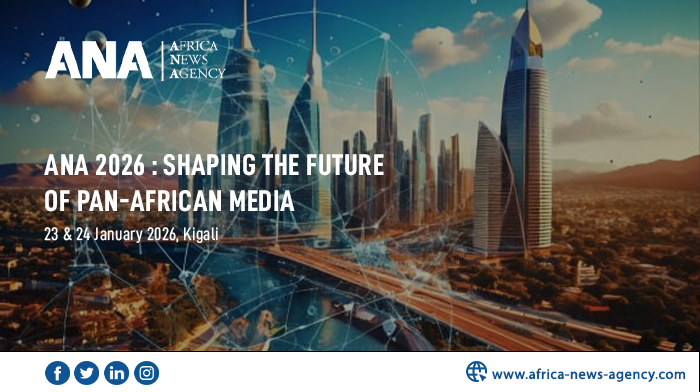Energy : the European Union intensifies its investments in renewable energy in Africa
October 21, 2025
Africa holds approximately 60% of the world’s best solar potential but still faces a major challenge: nearly 600 million people live without electricity. This situation underscores the urgency of supporting the energy transition, not only to improve access to energy but also to stimulate economic and social development.
For the European Union, investing in renewable energy in Africa addresses climate, economic, and geostrategic challenges. On one hand, these investments are part of the global fight against climate change and the effort to reduce greenhouse gas emissions. On the other hand, they help secure European supply chains for critical minerals while opening industrial and technological opportunities for the EU on the continent.
By strengthening infrastructure and green energy production capacity, Africa can not only meet its needs but also position itself as an exporter to regional and global markets.
Scaling Up Renewables in Africa: Mobilizing Up to €300 Billion by 2027 for Sustainable Infrastructure
The EU strategy is deployed through the Scaling Up Renewables in Africa initiative, integrated into the Global Gateway program, which aims to mobilize up to €300 billion by 2027 for sustainable infrastructure. Concretely, this funding translates into diverse and targeted projects across several African countries. In Kenya, €55 million is allocated to strengthening power grids and rural electrification. In Uganda, €60 million will develop storage systems and smart grids, directly benefiting more than 250,000 people. The DRC receives €90.14 million to modernize the network in the Kisangani area and support local industrialization. In Mauritania, €125 million is invested in creating a regional transmission corridor, connecting several high-demand areas. Togo benefits from €199 million for a project combining solar power and energy storage, while Cape Verde receives €39 million primarily for renewable electricity production. Finally, €30 million supports the Zambia-Tanzania interconnection, strengthening regional exchanges and improving the continent’s energy resilience.
These projects aim to stimulate local growth, create jobs, strengthen green industrialization, and prepare the continent to become a regional and global energy player.
Africa: An Underrepresented Actor
Some African countries have already begun significant investments in renewable energy. In Kenya, nearly 80% of electricity is now generated from renewable sources, primarily hydro, geothermal, and solar. Morocco, meanwhile, has developed the Noor solar project, one of the world’s largest solar complexes, contributing to clean energy production in the kingdom and reducing dependence on fossil fuels.
However, Africa remains poorly integrated into global renewable energy investment circuits. Currently, the continent mobilizes only 3–4% of global energy investments, despite its immense potential in solar, wind, hydro, and geothermal energy. Recent European funding aims to fill this gap while offering an alternative model to traditional approaches, often limited to occasional bilateral financing.
For the EU, supporting the development of renewables in Africa is not just an act of solidarity but a strategic lever
For the European Union, supporting renewable energy development in Africa is not only an act of solidarity but also a strategic and industrial lever: securing access to critical raw materials, promoting European clean technologies, and asserting its role in global economic diplomacy. “A transition to clean energy will create jobs, stability, and growth,” Ursula von der Leyen emphasized at the Global Gateway Forum.
Investing in African renewables allows the EU to secure its energy and technological dependencies while fostering the development of a stable and integrated African partner. Energy cooperation thus becomes a vector for shared growth, strengthening economic and political ties between the two continents.
At the same time, Africa can leverage this funding to develop local production capacity, improve grid resilience, and position itself in regional and global markets. These projects also provide opportunities for green industrialization, creating jobs and boosting the competitiveness of African economies.
The United States Join the Race
The European Union is not alone. The United States, through the Department of Energy (DOE) and private companies, is also intensifying its investments in renewable energy in Africa. At African Energy Week 2025, Senator Ted Cruz emphasized: “Africa is a strategic partner. The United States must establish itself as a strong alternative in the energy transition.”
Americans are particularly focusing on natural gas and LPG, and large-scale projects such as the Mozambique LNG, approved for $4.7 billion, or the Rovuma LNG project, valued at $30 billion. Companies like ExxonMobil and Kosmos Energy are active on multiple offshore fields, strengthening U.S. influence and creating leverage to attract private capital.
A Rivalry Between Foreign Powers in Renewable Energy That Benefits the Continent
The U.S.-EU rivalry in renewable energy benefits the continent. Africa is positioned to choose its partners, leverage its energy potential, and build a sustainable and integrated development model. For the EU, the challenge is clear: actively participate in Africa’s energy transition, promote its technologies and expertise, and establish a lasting strategic partnership. For the United States, it is about providing a solid alternative to China and reinforcing the presence of American companies on the African market. Together, these initiatives are transforming Africa into a key player in global energy, capable of meeting its needs and influencing regional and international development.
Search
RECENT PRESS RELEASES
Related Post




